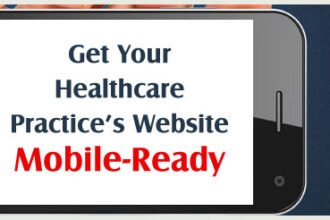Just like older adults, teens and young adults are searching for health information online — but their online behavior is a departure from previous generations.
The average American spends 24 hours per week online, but American teens comfortably beat that average, consuming digital media for a full nine hours a day. Today’s young people socialize, listen to music, and watch TV online — it only stands to reason that they would search for health information online, too.
While it’s well-known that millions of people regularly seek out information online, a new study from Hopelab surveying more than 1300 teens and young adults aged 14 to 22 is the first to reveal granular detail about young people’s health-related digital behavior. Like adults, these young people are seeking out health information online, but how and why they use digital health technology represents a departure from older generations.
How a Digital Generation Interacts with Healthcare
87% of teens and young adults surveyed say that they’ve gone online to find healthcare information, which isn’t very disparate from the national average of 80%. However, teens tend to seek health information using a wider variety of digital resources than older adults. While adults are more likely to head directly to a search engine, teens may begin their healthcare search by looking up a social media hashtag.
64% of teens have also used mobile applications related to health, most commonly for fitness, sleep, meditation, and medication reminders. Additionally, 61% have read, listened to, or watched other people’s health stories online, often in the form of blog posts, podcasts, YouTube videos, or TED talks. 39% have connected with other people with health conditions similar to their own using social media groups or online forums.
Overall, young people’s online behavior is indicative of their digital fluency: they’re comfortable using a large number of digital channels to seek out health information, demonstrating that they will soon represent the most digital patient base yet. While 77% of American adults now own smartphones, 94% of those aged 18 to 29 do. As more and more of these digital natives reach the age at which they begin making their own healthcare decisions, it’s never been more important to update digital platforms and strategies to address that major demographic shift.
Preparing for the Demographic Shift
Currently, most healthcare providers are far from being ready for the digital shift, as healthcare providers have been falling short of even older adults’ digital expectations. 62% of patients report that they can’t accomplish what they want to on most mobile digital health platforms, while around 40% of respondents cited irrelevant opinions and wasted time as key problematic areas. Despite that, 49% of businesses do not have a clearly-defined digital marketing strategy.
To reach and appeal to these young digital natives, healthcare providers will need to provide a seamless digital experience. These patients expect their healthcare experiences to mirror their experiences on popular social media and e-commerce platforms, but many healthcare providers simply aren’t there yet. Healthcare providers need to invest in their digital user experience and marketing strategy now to see the payoff later.
This may require polling patients on their expectations and experiences, and then building your website and marketing strategy based on that feedback. Addressing potential issues and rolling out digital initiatives can set your practice up for long-term success.










